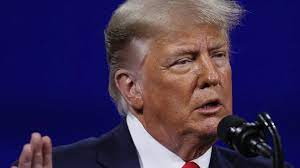
Manhattan prosecutors are reportedly intensifying their probe into former President Trump’s businesses, in particular his Seven Springs estate in New York.
Sources close to the matter told The Wall Street Journal that the Manhattan district attorney’s office has issued new subpoenas in recent weeks to obtain recordings of government meetings related to the Seven Springs estate and the Trump Organization’s unsuccessful attempt to create a luxury subdivision out of the property.
In January it was reported that Manhattan District Attorney Cy Vance Jr. had expanded his probe into the Trump Organization’s business dealings to include the Seven Springs estate. At the time, reports indicated that Vance was looking into whether the value of the property had been inflated in order to increase a tax deduction gained from donating 158 acres of the property for conservation.
Sources told the Journal that the DA’s office had also requested copies of planning board meetings in Bedford, N.Y., which is one of the towns that the Seven Springs estate sits on.
The Journal notes that Trump has valued the Seven Springs property at $291 million in 2012 to financial institutions. Inflating the value of assets in order to obtain financial benefits is a state criminal offense, the outlet notes.
In financial disclosure paperwork when he was president, Trump valued the property between $25 million and $50 million, the Journal reports, while local tax assessment rolls list the property value at around $19 million.
The probe into Trump’s property is part of larger investigation being carried out by the Manhattan DA’s office looking into possible tax, insurance and bank fraud, the Journal reports. Prosecutors are also reportedly looking into a loan for the Trump International Hotel and Tower Chicago.
In February it was reported that the Manhattan DA’s office had obtained Trump’s tax returns from his accounting firm, Mazars USA. Trump had attempted to block the subpoena for the tax returns, but the Supreme Court ruled against his argument that presidents have sweeping immunity from the criminal process.
Via The Hill
